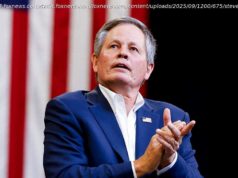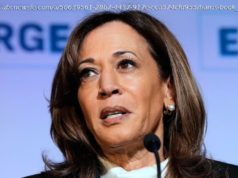It’s safe to say when UK Prime Minister Theresa May called a snap election in April, she wasn’t envisioning this outcome.
Here are six key takeaways from the most unexpected of elections.
Upheaval for ruling Tory party
Prime Minister Theresa May’s gamble in calling a snap election to strengthen her grip on power has ended in failure.
It’s a huge embarrassment for May, who called the early election with the aim of shoring up support for the Conservatives ahead of the country’s crucial Brexit negotiations. Now her future is in doubt, with Labour leader Jeremy Corbyn calling for her to step down, and commentators predicting a leadership challenge.
„This is a major disaster for her personal authority over the country and the Conservative Party, particularly because she made this election all about her ’strong and stable‘ leadership, “ Jane Merrick wrote for CNN . „She made the election a referendum on Theresa May and she has lost.“
‚Hard Brexit ‚ put in doubt
The tone of Brexit talks, tentatively scheduled to begin in just 10 days — and even May’s own position — are now up in the air.
With a hung parliament guaranteed, the so-called „hard Brexit“ that May had been pushing for seems less and less likely to pass.
The Conservatives will remain the largest party with the most number of seats, meaning they will have the first chance to form a government. However, they’re likely to find it difficult to enter into coalition with a smaller party like the Liberal Democrats, who are fundamentally opposed to Brexit.
Likewise, there is no chance of the Prime Minister doing a deal with Labour or the Scottish National Party, who are on the opposite side of the political divide to the Conservatives.
The EU had wanted exit talks to begin on June 19, but they could now be delayed if the inconclusive election leads to political turmoil.
What the UK election result could mean for Brexit
Women rising
Over 200 female MPs have been elected — that’s a record high for the UK parliament, which has a total of 650 members.
Notable women MPs who retained their seats include May, Conservative Home Secretary Amber Rudd — who kept her seat by a razor-thin margin after several recounts — Green Party leader Caroline Lucas, who retains her party’s sole seat in Brighton, and SNP’s Mhairi Black, who became the UK’s youngest MP when she won her seat in 2015 at the age of 20.
It’s a great result for anyone who wants to see more gender equality in politics — and it’s happened on the 104th anniversary of the death of suffragette Emily Wilding Davison, who spent her life fighting for the right of British women to vote.
SNP hurting
While the Tories licked their wounds elsewhere, it was, on balance a good night for the party north of the border. They won 13 seats on June 8 in Scotland, up from a paltry one in 2015, when the Scottish National Party swept all before them.
The SNP, on the other hand, lost 21 seats, down from a record 56 they won in 2015, in an apparent repudiation of the party’s promise to push for a second independence vote. Casualties include the party’s deputy leader Angus Robertson, and former SNP leader and party heavyweight Alex Salmond.
SNP leader Nicola Sturgeon, who has headed the party since 2014, said that the poor results meant that she would need to „reflect“ on the appetite for a new referendum.
Northern Ireland’s MPs: Kingmakers
The other big winners were Northern Ireland’s Democratic Unionist Party’s (DUP) MPs. The conservative, pro-union party only gained two seats to take their Westminster tally to 10, but as the Tories remain stymied in a hung parliament the DUP becomes disproportionately important, potentially linking up with the Conservatives to form a majority government.
The DUP’s influence might’ve been at least in part checked by the pro-independence Sinn Fein party, which gained three seats for a total of seven, but as their MPs don’t sit in parliament — they refuse to pledge allegiance to the Queen — their votes are worthless during potential collation talks.
Great night for Labour
Labour leader Jeremy Corbyn started this campaign with a deficit in the polls of around 20 points, and his chances written off by most experts, political commentators and the press. He ended it with 29 extra seats and the UK’s political system disrupted.
The result represents „an earthquake in Labour politics, “ political analyst Robin Oakley told CNN.
The longtime Labour MP and avowed socialist threw off his reputation as an ineffective campaigner this time around, engaging voters and holding mass rallies, raising his profile with a good-humored, largely positive — if populist — platform.
Ahead of the election Corbyn offered UK voters the most left-wing, big government policy agenda for nearly 40 years — and crucially an end to seven years of Conservative „austerity“ policies and campaigning on promises to push for better funding for health and education.
Jeremy Corbyn: The anti-establishment underdog who has shaken British politics






